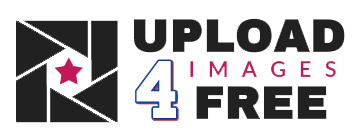Cancer affects millions of people worldwide each year. As a cancer survivor, I understand the importance of minimizing cancer risk through diet. In this article, I’ll discuss 7 specific foods that are proven to increase cancer risk and simple swaps you can make to take control of your health.

Processed Meats Are Carcinogenic
Processed meats like deli meats, hot dogs, sausages, and jerky are classified as carcinogenic by the World Health Organization (WHO). This means there is strong scientific evidence linking processed meats to increased cancer risk in humans.
Eating processed meats is associated with higher likelihood of developing breast, colorectal, colon, rectal, and lung cancers. But what exactly counts as a processed meat? It includes any meat that has been salted, cured, smoked, or enhanced in flavor or shelf life. This includes deli slices, sausages, hot dogs, jerky, and canned meats.
Less research exists on the cancer risk of processed white meat and fish. For optimal safety, it may be best to avoid processed forms of all meat types.
You may wonder if nitrate-free deli meat is any safer. Nitrates are commonly added to processed meats as preservatives and for color. It’s unclear if nitrates themselves raise cancer risk or if other processing compounds do. Even nitrate-free meats can contain nitrates from natural sources like celery powder.
To understand the risk, a study estimated eating 50g of processed meat daily (about one small serving) increases overall cancer risk by 18%. As a cancer survivor, I find that risk far too high. But you don’t need to fully eliminate processed meats, occasional intake likely poses little risk.
Alcohol Increases Cancer Risk
Alcohol is classified as carcinogenic by WHO. Habitual drinking raises the risk of breast, liver, mouth, and throat cancers. Risk rises with increasing amounts of alcohol consumption.
It’s thought that alcohol may lead to cancer by causing inflammation and DNA damage in the body. But the type of alcohol doesn’t matter, only the amount. Red wine was once thought to be protective thanks to antioxidants, but recent research disproves this theory. It’s healthier to get antioxidants from whole foods.
Some wonder how countries like Italy have such high wine consumption yet long-lived residents. The truth is Italian cancer rates are higher than many realize.
Skip the Sugar Sweetened Beverages
Sugary drinks including sodas, sweetened coffees, and other high-sugar beverages are linked to increased cancer risk. But this does NOT mean sugar itself causes cancer.
Here is the connection – people who regularly consume sugar-sweetened beverages tend to be overweight or obese. Excess body weight is tied to higher cancer risk. The effects of excess sugar intake that lead to this unhealthy weight are what raise cancer likelihood.
Pushing the notion that “sugar causes cancer” is overly simplified and damaging. For cancer survivors, extreme sugar restriction can lead to development of eating disorders. There is no benefit in totally eliminating sugar. But limiting intake of nutrient-void sugary beverages is wise for overall health.
Keep Red Meat Intake Moderate
The WHO lists red meat as “probably carcinogenic to humans.” Red meat refers to beef, pork, and lamb. To lower cancer risk, limit red meat to no more than a few weekly servings. Removing it entirely offers maximum benefit for cancer prevention.
An association between white meat (poultry, turkey, fish) and cancer has not been found. In fact, higher white meat intake may lower overall cancer risk.
Avoid Charred and Overcooked Foods
Meats cooked at high temperatures, especially over an open flame, can release cancer-causing compounds called polycyclic aromatic hydrocarbons (PAHs). PAHs increase the risk of breast, lung, and prostate cancers.
PAHs form when meat fat and juices hit an open flame. The smoke then adheres to the meat, transferring PAHs to your food. To lower exposure:
- Cook meats slowly at lower temperatures
- Avoid direct contact with flames
- Marinate meats in acidic ingredients like citrus or vinegar before grilling
- Trim excess fat from meats prior to cooking
Cut Back on High Sodium Processed Foods
A diet high in sodium is linked to higher stomach cancer risk. High sodium intake can cause chronic inflammation and impair immune function. Both inflammation and compromised immunity raise cancer likelihood.
To lower sodium, skip highly processed, packaged, and fast foods. Enjoy more fresh, whole foods seasoned with herbs and spices instead of salt.
Avoid Trans Fats
Trans fats, found in many commercially fried and baked goods, are tied to increased breast and colorectal cancers. Like excessive sodium, trans fats are thought to spur cancer development through promoting inflammation and free radical damage.
Luckily, trans fats have been banned or phased out in many parts of the world. Read ingredient labels carefully and avoid products with “partially hydrogenated oils.” Focus on healthy fats from foods like avocado, nuts, seeds, and olive oil instead.
Fill Your Plate with Cancer-Fighting Foods
Now that you know what foods to limit, focus on filling your diet with delicious, nourishing cancer-fighting foods.
